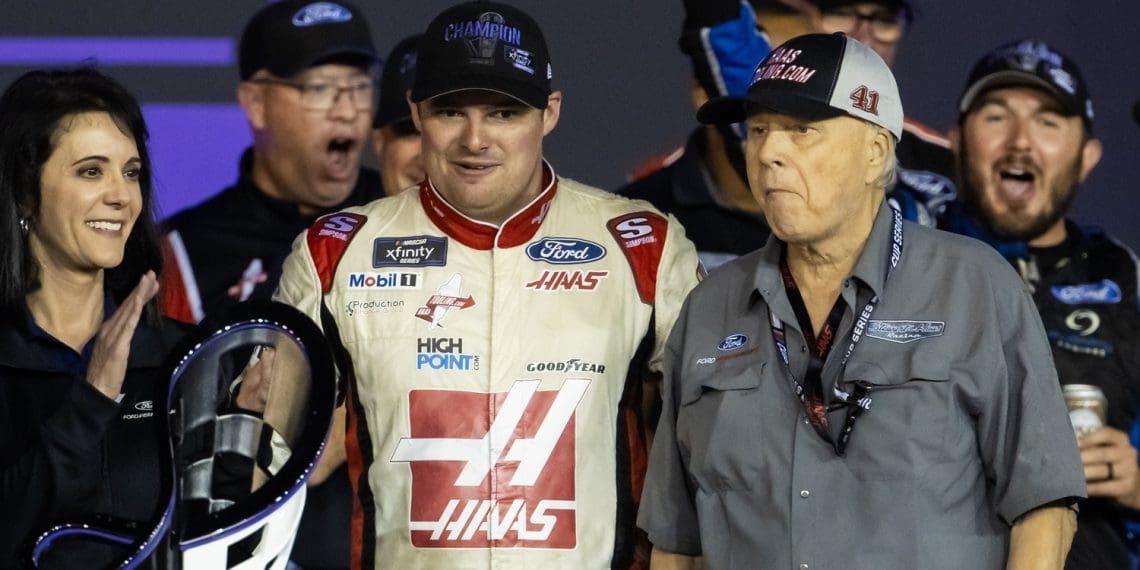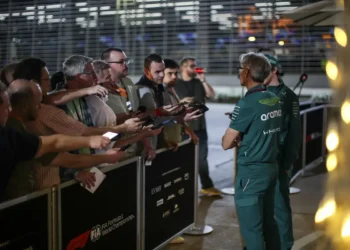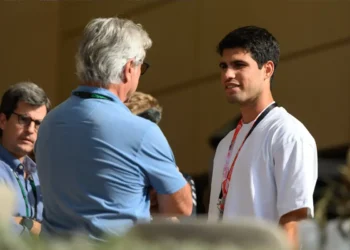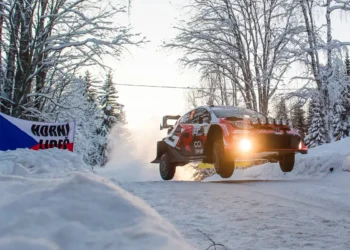The legal showdown between NASCAR and the rebellious duo of 23XI Racing and Front Row Motorsports (FRM) has taken a dramatic turn. With Stewart-Haas Racing (SHR) now backing the plaintiffs, the case has gained serious momentum. What began as a battle over charters and economic fairness has morphed into a larger reckoning over NASCAR’s alleged monopolistic practices.
Stewart-Haas Racing Becomes a Game Changer
When Tony Stewart’s SHR announced its shocking closure earlier this year, many assumed the team had simply fallen victim to financial struggles. However, recent developments indicate SHR’s situation may be central to the antitrust claims filed by 23XI and FRM. The key issue? NASCAR allegedly approved the sale of SHR charters in private conversations, only to later withhold that approval as a means to pressure teams into dropping the lawsuit.
Joe Custer, SHR’s president, bolstered the plaintiffs’ case by revealing critical behind-the-scenes conversations:
“NASCAR officials conveyed to me on more than one occasion that once the Buyers submitted their Transfer Approval Forms and signed their respective Joinder Agreements, NASCAR would promptly provide the necessary approvals to transfer the Charter Agreements to the Buyers.”
These claims are further supported by Jerry Freeze, FRM’s general manager, who cited a phone call with NASCAR President Steve Phelps in September. According to Freeze, Phelps confirmed that the SHR charter transfer had already been approved, pending the submission of routine paperwork.
However, NASCAR seemingly backtracked in December, with Phelps now conditioning approval of the charter sale on the plaintiffs dropping their lawsuit. Freeze called out this reversal, stating:
“NASCAR made it clear that the reason it was now changing course and objecting to the transfer is because NASCAR is insisting that we drop the lawsuit and antitrust claims against it as a condition of being approved.”
This accusation adds weight to claims that NASCAR’s control over the charter system—and its ability to approve or deny transfers—is a tool to stifle dissent and protect its monopoly.
The Core of the Lawsuit: Monopoly Allegations
The lawsuit filed by 23XI Racing (backed by NBA legend Michael Jordan) and FRM alleges a host of anti-competitive behaviors, including:
- Exclusive Ownership of Tracks: NASCAR owns or controls most Cup Series venues, preventing competing stock car leagues from accessing those facilities.
- Restrictive Charter System: NASCAR refuses to grant permanent charters, leaving teams at the mercy of the sanctioning body’s approval process for transfers.
- Next-Gen Car Mandates: Teams are required to purchase parts exclusively from NASCAR-approved vendors, creating artificially high costs.
- Barriers to Other Competitions: Charter teams cannot race in other stock car series without NASCAR’s approval.
The plaintiffs argue that these practices deprive race teams of a fair chance to earn a profit, describing the 2025 charter agreements as “below competitive market terms.”
In their latest filing, 23XI and FRM went a step further, directly accusing NASCAR Chairman James France of using his control over the sport to eliminate competition and impose unfair conditions. They cited the France family’s dominance since 2018 as a critical factor in NASCAR’s monopolistic grip.
NASCAR’s Defense: It’s Just “Business Negotiations”
In its motion to dismiss, NASCAR has framed the lawsuit as little more than sour grapes over “business negotiations that didn’t go their way.” The sanctioning body argues that:
- The value of charters has steadily increased, contradicting claims of financial hardship.
- The lawsuit is an attempt to strong-arm NASCAR into offering better terms, rather than addressing genuine antitrust violations.
However, SHR’s involvement complicates NASCAR’s defense. The revelations about verbal charter approvals—and subsequent reversals—add fuel to the plaintiffs’ argument that NASCAR’s control over the system is unfair and potentially unlawful.
What Happens Next? The Stakes Are Sky-High
The federal judge presiding over the case, Kenneth Bell, will decide whether to dismiss the lawsuit or allow it to proceed. If the case moves forward, the discovery process will begin, granting the plaintiffs access to NASCAR’s:
- Financial records
- Internal communications
- Charter approval processes
This would expose NASCAR’s financial dealings to intense scrutiny, potentially revealing disparities in revenue distribution and reinforcing claims of monopoly.
Are Michael Jordan and Tony Stewart NASCAR’s Unlikely Heroes?
The involvement of Stewart-Haas Racing adds undeniable weight to the lawsuit. Tony Stewart’s team, once a symbol of Cup Series success, now stands as evidence of the economic challenges facing race teams under NASCAR’s current system. Meanwhile, Michael Jordan’s 23XI Racing brings the financial clout and high-profile visibility needed to challenge NASCAR’s status quo.
Fans and critics alike are watching closely. The case could become a watershed moment for NASCAR, forcing the sanctioning body to reconsider its charter system, revenue distribution, and overall business model.
For now, one thing is clear: 23XI Racing, Front Row Motorsports, and Stewart-Haas Racing aren’t backing down. Whether this legal battle reshapes the sport or fizzles out in court, NASCAR’s grip on its monopoly is under more scrutiny than ever before.










